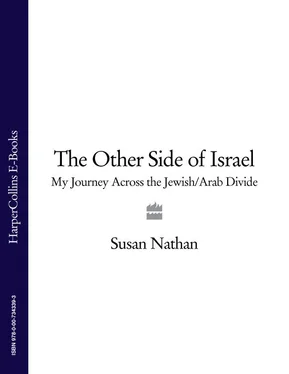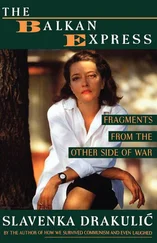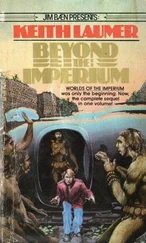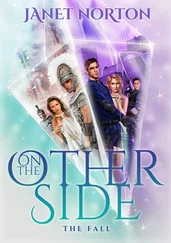1 ...8 9 10 12 13 14 ...18 If my family had survived the war unscathed, the plight of the many who had not touched me deeply. As with many others, the story of the Exodus —as told by novelist Leon Uris—shaped my perception of the tragedy that had befallen my people. I read of the ship that left Europe in July 1947, its decks choked with Holocaust survivors in search of sanctuary in what was then Palestine; of the refugees who tried to jump ship and reach the shores of the Promised Land; of the decision of the British to send the 4,500 refugees to internment camps in Cyprus because they had agreed to limits on Jewish immigration to avoid further antagonising the local Palestinian population and neighbouring Arab countries; and of the horrifying eventual return of the ship and its Jewish refugees to Germany. I was outraged by the thought that British soldiers—ruling Palestine under a mandate from the League of Nations—could have acted with such callousness. My alienation from my country, Britain, began from that point on.
The middle classes exercised a subtle, sophisticated discrimination against Jews in post-war Britain which was apparent enough to make me increasingly aware of my difference. There were the comments about my ‘funny name’—my maiden name is Levy. I heard tales that disturbed me about the clubs that excluded Jews as policy. Among my parents’ friends there were worried conversations about the ‘quotas’ on Jewish children that might prevent their offspring from being admitted to a good school. And my mother, who was born a Protestant but converted to Judaism after marrying my father, would tell of how everyone in her family apart from her own mother disowned her for choosing to marry a Jew.
During my childhood, at the rural boarding schools outside London where most of my time was spent, I felt as if I were wearing a yellow star, as if my Jewishness was a visible stain to the teachers and other pupils. These were demonstratively Christian schools, with chapel services and morning prayers. I was aware of my vulnerability, too: out of hundreds of children, only four others were Jewish in the senior school I attended. I swung between contradictory emotions. On the one hand I feared appearing different, and on the other I wanted to proudly own that difference. Although I did not have the courage to refuse to attend morning prayers, I resolutely kept my mouth closed during the hymns. It was a very isolating experience: I felt outside the consensus, subtly but constantly reminded of my difference. This is, I think, a common experience for Diaspora Jews, but one little appreciated by Israeli Jews who were born and raised in a state where they comprise the majority.
My growing distance from British society was reflected in an ever greater attachment, if only emotionally, to Israel. I was raised on stirring stories of the great and glorious Jewish state. For non-Jews it is perhaps difficult to appreciate what an enormous impact the creation of the state of Israel had on us. It reinvented our self-image, anchoring our pride in a piece of territory that had been our shared homeland two thousand years before. It satisfied our sense of historic justice and showed we could forge our own place among the modern nation states. But more than that, many Jews, myself included, were excited by the triumphs of our army, particularly those of 1948 and 1967, when Israel took on its Arab neighbours and won substantial territory from them. Here we were, a persecuted, isolated people, freeing ourselves from the ghettos of Europe and rising phoenix-like from the ashes of the gas chambers to become warriors. No longer a helpless minority always at risk of persecution, we were a proud people reclaiming our homeland, and willing and able to fight to defend it on the battlefleld. Young Jews need not imagine a future as either merchants or intellectuals, but rather as brave and courageous soldiers. We could call ourselves ‘Sabra’—identifying with the prickly Middle Eastern cactus that flourishes in even the most hostile terrain.
I married my husband, Michael Nathan, a successful lawyer, in 1970 at the age of twenty-one. My early marriage, frowned upon by my parents, brought me into the embrace of a much more religious family than my own. Michael’s mother and father were traditional and Orthodox, in sharp contrast to my own parents’ secular, liberal background, and our differences in upbringing, culture and outlook would eventually push us apart. During the twenty-six years of our marriage, however, Michael and I only ever visited Israel together once, when we went to see his brother in Jerusalem. Michael never shared my attachment to the Jewish state, and on the seven other occasions I visited I was always alone. Our two children forged their own relationships with Israel, touring the country as part of youth groups or working on kibbutzim. But although this was officially my state I always left Israel as a tourist, an outsider, with a feeling that its inner substance had not been fully revealed to me.
So when I arrived to claim Israeli citizenship in 1999, my head was still full of romantic notions of Zionism and the Jewish state. The Jews had reclaimed an empty, barren land—‘a land without people for a people without land’. We had made the desert bloom, we had filled an uninhabited piece of the Middle East with kibbutzim, the collective farms that were the pioneering backbone of the state in its early years. At that stage, the thought that the country was full of strangers, people whom I and my countrymen lived alongside but entirely apart from, did not enter my head. The one million Arabs who share the state with Jews—Palestinians who remained on their land after the 1948 war that founded Israel, and so by accident rather than design became Israeli citizens—were invisible to me, as they are to almost all Israeli Jews. Their culture, their society and their story were a mystery.
The excitement of being in Israel did not quickly dissipate. My first months were filled with thrilling moments of feeling, for the first time in my life, that I belonged to the majority. I did not need to explain my family name, nor did I have to hide my pride in my Jewishness. I could have walked down the street with a Star of David emblazoned on my lapel if I wanted to; no one would have batted an eyelid. There was even a strange sense of liberation in calling a plumber and opening the door to a man wearing a kippa, the small cloth disc worn by religious Jewish men as a head covering. It made me think, I really am in the land of the Jews.
Even the stories that had inspired me as a child now came dramatically to life. Soon after my arrival I was hanging the laundry outside the kitchen window of my Tel Aviv flat when I noticed an old woman waving down to me from a neighbouring apartment block, a dilapidated building erected in the early 1950s. Noticing a new face in the area, she called out that her name was Leah, and asked who I was and where I was from. I told her, then asked whether she had been born in Israel. No, she replied, she had been born in Poland. During the Second World War she had been separated from her parents, who were later killed in a concentration camp. She went into hiding in the woods, staying with several Russian families, before envoys from the Jewish Agency tracked her down and put her on a ship to Palestine. That ship was the Exodus . She recounted the story of the trip in the packed boat that I had read about in my teenage years, and how they were turned back to Germany. She told me of the horrific overcrowding on the ship, of the bodies stuffed together, but also of the excitement as they neared the Promised Land. Here in Leah I had found a living, breathing piece of history, a woman who made flesh all the reasons why I felt attached and committed to Israel.
Most Jews are all too ready to tell you how much Israel means to them as a sanctuary. How safe they feel knowing that there is a country they can flee to should anti-Semitism raise its ugly head again. How reassuring it is to have a country that will protect them, having inherited the legacy of centuries of persecution and the horrors of the Holocaust. What they are much less ready to admit is that Israel is not just a safe haven and a homeland; it also embodies the value of naked Jewish power. What I felt arriving in Israel—as I suspect do many other Jews—was that through my new state I was defying a world that had persecuted my people. Being in the majority, and not needing to explain myself, was a condition I was unfamiliar with after five decades as a British Jew. The sense of being in charge, of putting the boot on the other foot, was more than a little intoxicating.
Читать дальше












